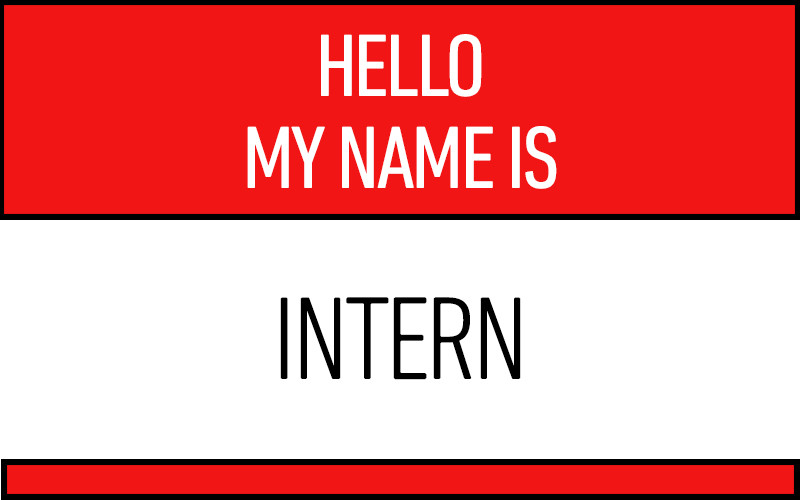 Hi! I’m Shinjini Nunna, a Salesforce 2015 Software Engineering Intern.
Hi! I’m Shinjini Nunna, a Salesforce 2015 Software Engineering Intern.
My internship at Salesforce was the first time I’d worked at a large tech company. Coming in, I was incredibly unsure about how to operate on a day-to-day basis, much less make the most of my three months at Salesforce.
Luckily, I had a fantastic mentor, manager, and team. With their help, I was able to learn from a meaningful intern project, win the Salesforce Grace Hopper Competition, and develop valuable professional skills and connections.
Here are ten tips I picked up along the way:
Optimize your ramp up
 Your first couple of weeks can be daunting. It will take some time to learn everything. Use your time wisely. Schedule one-on-ones with your team or even people outside of your team. Go through more training (and get badges!) Read about your company’s architecture and technology online. Meet the teams you’ll be working with for your project. Increasing your context for your internship will increase the success and impact of your experience.
Your first couple of weeks can be daunting. It will take some time to learn everything. Use your time wisely. Schedule one-on-ones with your team or even people outside of your team. Go through more training (and get badges!) Read about your company’s architecture and technology online. Meet the teams you’ll be working with for your project. Increasing your context for your internship will increase the success and impact of your experience.
![]()
Ask others to help you grow and develop
Set up time to meet one-on-one with your manager(s) and mentor(s). From week one, let them know in which areas you would like to see yourself grow professionally. After they get to know you, see if they have any additional recommendations. Stating your goals to others will not only make you accountable to those individuals, but yourself as well. Your managers and mentors will be able to give you advice, opportunities, and training to help you grow.
Learn to be a team coder

As you work on personal projects and school assignments, the process of designing, developing and debugging code tends to be self-contained. Working on a shared code base in a professional setting is a whole new ballgame.
The key is to strike a balance between doing your due diligence to ensure that your contributions integrate properly with existing code and using the agile development cycle advantageously. Take the time to discuss your design with others but remember moving ahead with development as soon as possible is part of the “fail fast and iterate” philosophy. Be prepared to logically explain your development decisions and welcome feedback.
Don’t get frustrated if this all is challenging – view this process as the next step to your growth as a developer.
Unblock yourself in a timely and efficient manner
Don’t get pulled in further down the rabbit hole – when you’re working on solving a problem yourself, the hour you spend debugging and implementing solutions suddenly becomes two or three. Sometimes this works, but more often than not you’re left not much further than where you started and certainly more frustrated. Instead, try to ‘timebox’. Spend an hour working on the issue by yourself. At the end of the hour, walk over and talk to someone about your issue, what you’ve tried and what you’re going to try next. You’d be amazed at how much faster you’ll become unblocked with others’ help, feedback, and suggestions.
Ask questions
 The benefits of asking questions go further than just the knowledge you’ll gain from the answers you receive. Asking questions forces you to be engaged and think critically. It’s far too easy to be a passive observer at Lunch and Learns, Tech Talks or Architecture team meetings — having to formulate a question to ask pushes you to be an active listener.
The benefits of asking questions go further than just the knowledge you’ll gain from the answers you receive. Asking questions forces you to be engaged and think critically. It’s far too easy to be a passive observer at Lunch and Learns, Tech Talks or Architecture team meetings — having to formulate a question to ask pushes you to be an active listener.
Get to know others, have fun
Remember that you aren’t chained to your desk! Hang out with the other interns on your floor. Get lunch with interesting people you meet. Play a game of pool. Get a massage at the fitness center. You’ll work better and be happier for it.
Talk to other interns about their experiences
 Sharing your difficulties and frustrations with other interns who may be experiencing the same issues is helpful. Even better is when you have solutions to offer each other! Also, learning about other interns’ projects, teams, and managers can help you get a sense of other opportunities at the company you’re working at as well as the work culture at large.
Sharing your difficulties and frustrations with other interns who may be experiencing the same issues is helpful. Even better is when you have solutions to offer each other! Also, learning about other interns’ projects, teams, and managers can help you get a sense of other opportunities at the company you’re working at as well as the work culture at large.
Communicate and escalate
When I first faced a serious blocker, my initial reaction was to send an email to the appropriate person asking for help and wait for their response. Now, I know to take advantage of the various methods of communication at Salesforce – gChat, HipChat, Chatter groups, office hours, etc. – and “timebox” our communication. For example, if it is regarding a high priority item, you might wait an hour, and if you don’t hear back, post on the team’s Chatter page and @mention the individual or simply walk over to their desk. Don’t hesitate to make your blockers a priority to others and drive communication.
Understand how decisions are made
 Get to know the hows and whys of your company—why are they so successful? Start with your team – why was your intern project chosen? What are your team’s goals for this release? How were they chosen? How do they align with your director’s goals? The company’s goals? This may not interest everyone but if your plan is to have a corporate career, getting insight into this decision-making is valuable.
Get to know the hows and whys of your company—why are they so successful? Start with your team – why was your intern project chosen? What are your team’s goals for this release? How were they chosen? How do they align with your director’s goals? The company’s goals? This may not interest everyone but if your plan is to have a corporate career, getting insight into this decision-making is valuable.
Think outside of your project
Focusing solely on your project during your internship at your company is like eating only one candy at a sweet shop where everything is free. Make use of the resources and incredibly smart people there. Are you in engineering but curious about marketing? Shadow someone from marketing for a day. Working on a side project? Pick the brains of an engineering team working in a similar area. The only limitations here are the ones you create – so don’t!